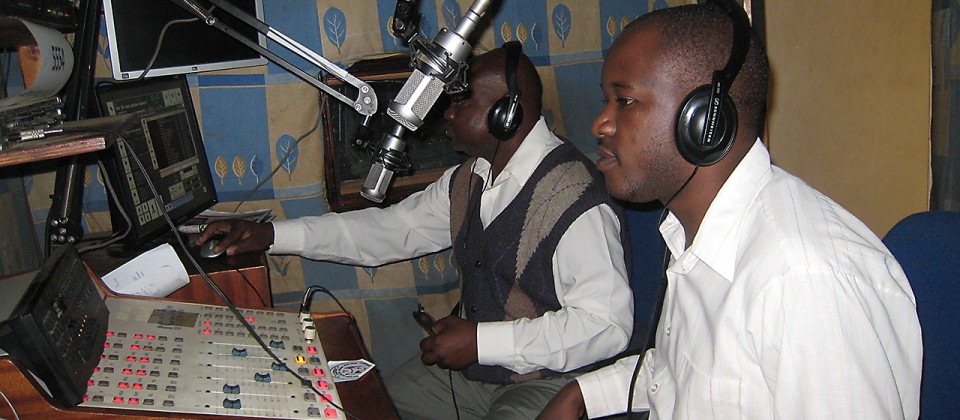- Overview
- Media Landscape
- Conflict Case 1: Citizenship and collective identities – Somali community
- Conflict Case 2: Elections – 2007 and 2013 Elections
- Conflict Case 3: Transitional Justice – ICC’s Case against President Uhuru Kenyatta
Kenya – an Overview
Kenya gained independence from the British government in 1963 and was subsequently ruled by a one-party system controlled by the Kenya African National Union (KANU) party until 1992, when President Daniel Arap Moi repealed part of the constitution that had mandated one-party politics. Multi-party politics has since helped in the liberalization of the Kenyan economy and media environment. There has been a high level of political competition and Kenya’s elections have often been associated with violence, most notably the contentious 2007 elections. The proceedings of President Uhuru Kenyatta and Deputy President William Ruto at the International Criminal Court (ICC) have dominated the recent political debate, with strong international implications as key donors have sought to distance themselves from the government. Kenya is currently involved in the conflict in Somalia, which has had strong repercussions on domestic security as there have been regular terrorist attacks, further exacerbating tensions with Kenya’s large Somali community.
Kenya’s Media Landscape
Kenya hosts one of the most vibrant media scenes in Africa. It has taken a leading role in seizing the opportunities offered by old and new media, testing their potential and experiencing their contradictions. Kenya’s most popular media – radio and the mobile phone – have been used to promote and coordinate violence, as witnessed in the aftermath of the 2007 elections, but its media as institutions have also reacted to instill a sense of shared responsibility among citizens to contain destabilising forces and learn from past mistakes. Even in their pacifying function, however, the Kenyan media have been heavily criticized, questioning whether after the 2007 elections they had gone too far, colluding with power, and ultimately choosing development and peace over justice. In general, the contemporary history of the media in Kenya, after multipartism was reintroduced in 1992 and a new generation of leaders came to power in 2002, is the history of constant negotiations among competing models and interests and of conflicts that are only temporarily reconciled and persistently re-emerge in new forms.
Conflict Case 1:
Somali community
Tensions between Kenya’s Somali population, other ethnic groups and the government of Kenya continue to rise. In September 2013, several Kenyan Somalis involved with the Somali extremist group Al Shabaab, were leading the terrorist attack on one of Nairobi’s up-market shopping centres, the Westgate. This was an escalation from what has been continuous violence towards non-Somali Kenyans, such as bombings of bus stations, throwing grenades in churches, etc. This conflict also reflects different cultures of communication within the society as well as different ways that politicians, public authorities and those with business interests seek to occupy the media space.
Conflict Case 2:
2007 and 2013 Elections
In the aftermath of the inter-ethnic violence that followed the 2007 general elections and left about 1,400 dead, the media, most notably vernacular radio stations, were accused of having incited ethnic hatred. At the same time, the mainstream media were accused of abandoning impartiality, deliberately covering up evidence of vote rigging. During the 2013 elections, the media played a very different role. As part of a broader “peace narrative”, radio stations and newspapers carefully avoided any content that might trigger conflict, and largely bought into the government’s argument that any public speech likely to inspire instability or threaten national unity was illegitimate, irrespective of whether this might impinge journalistic independence. The two elections reflect the dilemmas of free speech and competitive elections in volatile, divided societies.
Conflict Case 3:
Transitional Justice – the ICC’s Case against President Uhuru Kenyatta
The governments of first Mwai Kibaki (2007-2013) and later Uhuru Kenyatta (2013-) have invested considerable energy in challenging the legitimacy of ICC proceedings against President Kenyatta and his running-mate, William Ruto. The Kenyan media was initially broadly supportive of the ICC proceedings. But as the Kenyan government adopted a “Mugabe-ist” strategy of demonising critical civil society and media voices as neo-colonial “sell outs” and “traitors”, this gave way to a much more critical perspective on the ICC. However, counter-currents can also be observed: a new Nairobi based “twitterati” utilised social media to criticize Kenyatta and Ruto and defend their prosecution.

